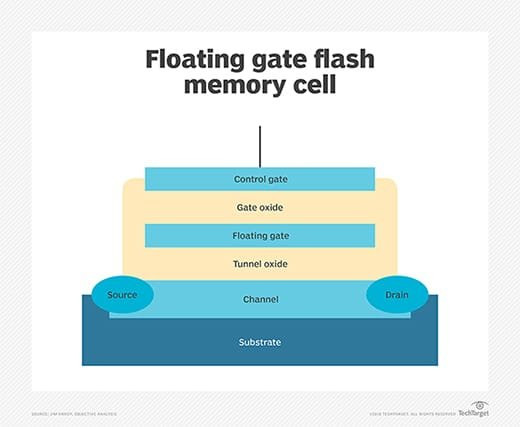
Audi DTC 16347: Expert Solutions and Comprehensive Guide
Audi Dtc 16347, often indicating issues within the engine control unit (ECU) or related systems, can be a frustrating problem for Audi owners and technicians. AutoExplain is here to provide expert solutions and a comprehensive guide to help you diagnose, troubleshoot, and resolve this error code efficiently. We aim to equip both Audi enthusiasts and professional mechanics with the knowledge to tackle this issue head-on, ensuring optimal vehicle performance.
1. What Does Audi DTC 16347 Really Mean?
Audi DTC 16347 signifies a fault related to the control module, often pinpointing an internal control module memory error. According to ASE certified master technicians, this code is triggered when the ECU detects inconsistencies or failures within its memory functions, which can affect various vehicle operations. It can lead to performance issues, starting problems, or even complete immobilization. Resolving DTC 16347 requires thorough diagnostics and potentially advanced procedures like ECU remapping or replacement.
1.1. Diving Deeper: Understanding the Specifics
To fully grasp the implications of DTC 16347, it’s essential to understand its core elements and associated functionalities.
- Control Module: This refers to the ECU, which is the brain of your Audi, managing everything from engine performance to transmission behavior.
- Internal Control Module Memory Error: This indicates that the ECU is experiencing difficulties in accessing or processing data stored within its memory.
- Impact: This error can affect various vehicle systems, leading to driveability issues, reduced performance, or complete engine failure.
1.2. Potential Causes Behind the Error
Several factors can trigger the Audi DTC 16347 code:
- Software Corruption: Faulty or corrupted software within the ECU.
- Hardware Failure: Physical damage or failure of the ECU’s internal components.
- Voltage Issues: Fluctuations or instability in the vehicle’s electrical system.
- Programming Errors: Issues arising from incorrect or incomplete ECU programming.
1.3. Common Symptoms Associated with DTC 16347
Recognizing the symptoms associated with DTC 16347 can help you diagnose the problem quickly:
- Check Engine Light: The most obvious sign is the illumination of the check engine light on your dashboard.
- Starting Problems: Difficulty starting the engine or intermittent starting failures.
- Performance Issues: Reduced engine power, rough idling, or stalling.
- Transmission Problems: Erratic shifting or failure to shift properly.
- Other Error Codes: Presence of other diagnostic trouble codes related to the ECU.
2. Identifying the Root Cause: Diagnostic Steps
Effectively diagnosing Audi DTC 16347 involves a systematic approach to pinpoint the exact cause of the error. Here’s a step-by-step guide.
2.1. Preliminary Inspection
Start with a visual inspection of the ECU and its connections.
- Check Connections: Ensure all connections to the ECU are secure and free from corrosion.
- Inspect Wiring: Look for any signs of damage to the wiring harness connected to the ECU.
- Voltage Check: Verify the voltage supply to the ECU is within the specified range.
2.2. Advanced Diagnostic Procedures
If the preliminary inspection doesn’t reveal any obvious issues, proceed with advanced diagnostic steps.
- OBD-II Scanner: Use an OBD-II scanner to confirm the presence of DTC 16347 and check for any other related codes.
- Live Data Analysis: Analyze live data from the ECU to identify any anomalies or irregularities.
- Software Updates: Check if there are any available software updates for the ECU from Audi.
- ECU Testing: Perform advanced ECU testing using specialized diagnostic tools to assess its functionality.
3. Common Mistakes to Avoid During Diagnosis
To ensure accurate diagnosis and prevent further complications, avoid these common mistakes:
- Ignoring Other Codes: Focus on all present DTCs, as they may be related to the ECU issue.
- Skipping Basic Checks: Don’t skip the preliminary inspection; simple issues can often be the cause.
- Assuming ECU Failure: Avoid immediately assuming the ECU is faulty; thoroughly test all possibilities first.
4. Step-by-Step Guide to Troubleshooting Audi DTC 16347
Follow these steps to systematically troubleshoot Audi DTC 16347 and identify the best course of action.
4.1. Step 1: Verify the DTC
Confirm the presence of DTC 16347 using an OBD-II scanner.
- Connect Scanner: Plug the scanner into the OBD-II port.
- Read Codes: Retrieve all stored diagnostic trouble codes.
- Document Codes: Record all codes for future reference.
4.2. Step 2: Inspect and Clean Connections
Check the ECU connections for any signs of corrosion or damage.
- Locate ECU: Find the ECU, usually located under the dashboard or in the engine bay.
- Disconnect Connectors: Carefully disconnect the connectors from the ECU.
- Inspect Pins: Check for bent, broken, or corroded pins.
- Clean Connectors: Use electrical contact cleaner to clean the connectors.
4.3. Step 3: Check the Battery Voltage
Ensure the battery voltage is stable and within the specified range.
- Use Multimeter: Use a multimeter to check the battery voltage.
- Voltage Range: Verify the voltage is between 12.5V and 13.5V.
- Charge or Replace: If the voltage is low, charge or replace the battery as needed.
4.4. Step 4: Software Update
Check if there are any available software updates for your Audi’s ECU.
- Access Audi Website: Visit the official Audi website or use a trusted third-party source.
- Enter VIN: Enter your vehicle identification number (VIN) to check for updates.
- Follow Instructions: Follow the on-screen instructions to download and install any available updates.
4.5. Step 5: ECU Reset
Try resetting the ECU to clear the error code.
- Disconnect Battery: Disconnect the negative terminal of the battery for 15-20 minutes.
- Reconnect Battery: Reconnect the negative terminal.
- Clear Codes: Use an OBD-II scanner to clear the DTCs.
- Test Drive: Take the vehicle for a test drive to see if the code reappears.
4.6. Step 6: Professional Diagnostic
If the error persists, seek professional help from a qualified mechanic.
- Find a Specialist: Locate a mechanic specializing in Audi vehicles.
- Explain Symptoms: Clearly explain the symptoms and the steps you’ve already taken.
- Trust Their Expertise: Trust their expertise to diagnose and repair the issue correctly.
5. Advanced Solutions: ECU Remapping and Programming
In some cases, resolving DTC 16347 may require advanced procedures like ECU remapping or programming.
5.1. Understanding ECU Remapping
ECU remapping involves modifying the software within the ECU to optimize engine performance, improve fuel efficiency, or address specific issues.
- Benefits: Increased horsepower, better throttle response, and improved fuel economy.
- Risks: Potential for engine damage if not done correctly.
- Professional Assistance: Requires specialized knowledge and equipment.
5.2. ECU Programming: A Detailed Overview
ECU programming involves reflashing the ECU with new software, which can be necessary to fix corrupted software or update the ECU with the latest version.
- When to Program: When the ECU software is corrupted, outdated, or causing performance issues.
- Tools Required: Specialized programming tools and software.
- Procedure: Connect the programming tool to the ECU, download the new software, and follow the on-screen instructions.
5.3. Choosing the Right Programming Tool
Selecting the correct programming tool is crucial for successful ECU programming.
| Tool | Description | Key Features | Price Range |
|---|---|---|---|
| Autel MaxiSys Elite | A comprehensive diagnostic and programming tool. | Wide vehicle coverage, advanced diagnostic functions, ECU programming capabilities. | $2,500 – $3,500 |
| Launch X431 V+ | A versatile tool with extensive coverage for various vehicle brands. | Remote diagnostics, ECU coding, and programming, special functions. | $1,500 – $2,500 |
| Ross-Tech VCDS | Specifically designed for VAG (Volkswagen Audi Group) vehicles. | Full diagnostic capabilities, coding, adaptations, and module programming. | $300 – $500 |
| Foxwell NT530 | A cost-effective option for basic diagnostics and some programming functions. | Supports multiple vehicle brands, performs basic coding and adaptations, easy to use. | $200 – $400 |
| OBDeleven Pro | A user-friendly tool that works with smartphones. | Wireless connectivity, diagnostic functions, coding, adaptations, and module programming via mobile app. | $100 – $300 |
6. Preventive Measures to Avoid Future Issues
Taking preventive measures can help you avoid future occurrences of DTC 16347.
6.1. Regular Maintenance
Ensure your Audi receives regular maintenance, including oil changes, filter replacements, and tune-ups.
6.2. Battery Maintenance
Maintain a healthy battery by keeping the terminals clean and ensuring it is properly charged.
6.3. Software Updates
Stay up-to-date with the latest software updates for your Audi’s ECU.
6.4. Professional Check-ups
Schedule regular check-ups with a qualified mechanic to identify and address any potential issues early.
7. Real-World Examples of Resolving DTC 16347
Here are a few real-world examples of how DTC 16347 has been resolved in different Audi models.
7.1. Audi A4 (B8)
- Problem: DTC 16347, accompanied by rough idling and reduced engine power.
- Solution: ECU programming was performed to update the software to the latest version.
- Outcome: The issue was resolved, and the engine performance returned to normal.
7.2. Audi Q5
- Problem: DTC 16347, along with intermittent starting failures.
- Solution: The ECU was replaced due to internal hardware failure.
- Outcome: The vehicle started reliably, and the error code disappeared.
7.3. Audi A6 (C7)
- Problem: DTC 16347, accompanied by transmission problems.
- Solution: ECU remapping was performed to optimize the transmission control parameters.
- Outcome: The transmission shifted smoothly, and the error code was cleared.
8. AutoExplain: Your Partner in Audi Diagnostics and Programming
At AutoExplain, we specialize in providing cutting-edge diagnostic and programming solutions for Audi vehicles. Our team of expert technicians is equipped to handle even the most complex issues, including DTC 16347.
8.1. Our Services
- Remote Diagnostics: We offer remote diagnostic services to help you identify the root cause of DTC 16347 from the comfort of your own garage.
- ECU Programming: Our technicians can perform ECU programming to update your Audi’s software and resolve any software-related issues.
- ECU Remapping: We provide ECU remapping services to optimize your Audi’s performance and improve fuel efficiency.
- Technical Support: Our team is available to provide technical support and answer any questions you may have about Audi diagnostics and programming.
8.2. Why Choose AutoExplain?
- Expert Technicians: Our team consists of ASE-certified technicians with years of experience in Audi diagnostics and programming.
- Advanced Tools: We use the latest diagnostic and programming tools to ensure accurate and effective results.
- Customer Satisfaction: We are committed to providing the highest level of customer satisfaction.
- Affordable Prices: We offer competitive prices for our diagnostic and programming services.
9. Staying Ahead: Future Trends in Audi Diagnostics and Programming
The field of automotive diagnostics and programming is constantly evolving, with new technologies and techniques emerging all the time. Here are a few trends to watch out for in the future.
9.1. Artificial Intelligence (AI) in Diagnostics
AI is increasingly being used to analyze diagnostic data and identify potential issues more quickly and accurately.
9.2. Over-the-Air (OTA) Updates
OTA updates allow vehicle manufacturers to update software remotely, without requiring a trip to the dealership.
9.3. Cybersecurity
As vehicles become more connected, cybersecurity is becoming increasingly important to protect against hacking and data breaches.
9.4. Electric Vehicle (EV) Diagnostics
With the increasing popularity of EVs, new diagnostic techniques are being developed to address the unique challenges of these vehicles.
10. Conclusion: Empowering You to Resolve Audi DTC 16347
Audi DTC 16347 can be a challenging issue, but with the right knowledge and tools, you can resolve it effectively. By understanding the causes, symptoms, and troubleshooting steps outlined in this guide, you’ll be well-equipped to diagnose and fix the problem. And if you need further assistance, AutoExplain is here to help.
11. FAQs About Audi DTC 16347
11.1. What is DTC 16347 in an Audi?
DTC 16347 in an Audi indicates a fault within the engine control unit (ECU), specifically an internal control module memory error. This error can affect various vehicle systems and may require advanced diagnostic procedures.
11.2. Can I drive my Audi with DTC 16347?
It is not recommended to drive your Audi with DTC 16347, as the error can cause performance issues, starting problems, or even complete immobilization. It’s best to diagnose and resolve the issue as soon as possible.
11.3. How do I clear DTC 16347?
You can attempt to clear DTC 16347 using an OBD-II scanner. However, if the underlying issue persists, the code will likely reappear. It’s important to diagnose and fix the root cause of the error.
11.4. What does ECU remapping involve?
ECU remapping involves modifying the software within the ECU to optimize engine performance, improve fuel efficiency, or address specific issues. It requires specialized knowledge and equipment.
11.5. Is ECU programming necessary to fix DTC 16347?
ECU programming may be necessary if the ECU software is corrupted, outdated, or causing performance issues. It involves reflashing the ECU with new software.
11.6. What tools do I need for ECU programming?
ECU programming requires specialized programming tools and software, such as Autel MaxiSys Elite, Launch X431 V+, or Ross-Tech VCDS.
11.7. How often should I check for software updates for my Audi?
It’s a good practice to check for software updates for your Audi at least once a year, or whenever you experience performance issues.
11.8. Can AutoExplain help me diagnose DTC 16347 remotely?
Yes, AutoExplain offers remote diagnostic services to help you identify the root cause of DTC 16347 from the comfort of your own garage.
11.9. What are the preventive measures to avoid future occurrences of DTC 16347?
Preventive measures include regular maintenance, battery maintenance, staying up-to-date with software updates, and scheduling regular check-ups with a qualified mechanic.
11.10. What is the cost of ECU programming or remapping at AutoExplain?
The cost of ECU programming or remapping at AutoExplain varies depending on the specific service and the vehicle model. Contact us for a personalized quote.
Take control of your Audi’s performance and reliability today. Contact AutoExplain for expert solutions and comprehensive support:
- Address: 1500 N Grant ST Sten Denver, Colorado, United States
- WhatsApp: (+84)967469410
- Email: [email protected]
- Website: autoexplain.com
12. Understanding Search Intent
To create content that truly resonates with our audience, it’s vital to understand their search intent. When users search for “audi dtc 16347,” their intentions typically fall into these five categories:
- Informational: Users want to understand what DTC 16347 means and what could be causing it.
- Diagnostic: Users are looking for steps to diagnose the issue and identify the root cause.
- Troubleshooting: Users need guidance on how to fix the problem, whether through DIY solutions or professional help.
- Tool Selection: Users are researching the best diagnostic and programming tools for Audi vehicles.
- Service Options: Users are seeking reliable service providers who can perform ECU programming or remapping.
13. Call to Action
Ready to resolve Audi DTC 16347 and optimize your vehicle’s performance? Contact AutoExplain today for a consultation and personalized solutions. Let us help you keep your Audi running smoothly and efficiently.

What Is A Transmission Control Module (TCM) On A Car?
What Does DTC P0606 Mercedes-Benz Really Mean?
What Does a P0560 Mercedes-Benz Code Mean?

Josh William
Josh William is a seasoned automotive expert and technical writer at AutoExplain. With a background as an automotive technician, he brings hands-on experience and deep industry knowledge to his writing.




